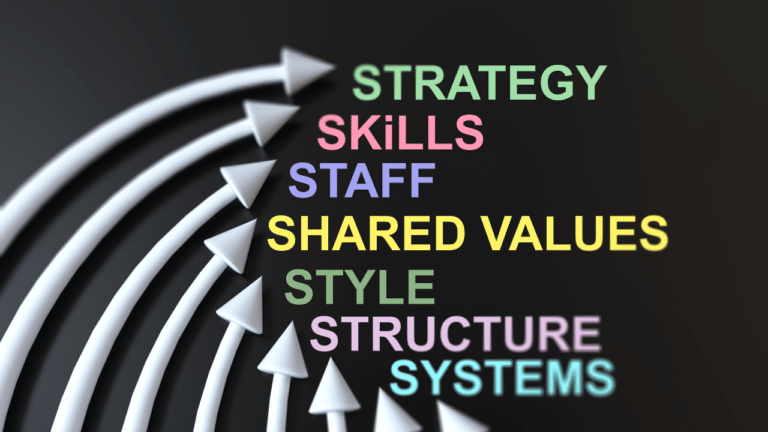Treat your staff like grown-ups
 Do you treat your staff like grown-ups? For example, how much freedom do you give them to get their jobs done or how much do you trust them to work when either you’re not there or they’re working from home?
Do you treat your staff like grown-ups? For example, how much freedom do you give them to get their jobs done or how much do you trust them to work when either you’re not there or they’re working from home?
 Do you treat your staff like grown-ups? For example, how much freedom do you give them to get their jobs done or how much do you trust them to work when either you’re not there or they’re working from home?
Do you treat your staff like grown-ups? For example, how much freedom do you give them to get their jobs done or how much do you trust them to work when either you’re not there or they’re working from home?
The McKinsey 7S Framework is a powerful tool for organisational assessment and alignment, developed by Tom Peters and Robert Waterman during their tenure at McKinsey & Company. The framework comprises seven integral components: Strategy, Structure, Systems, Staff, Skills, Style, and Shared Values, each equally significant and interdependent. In this blog, I want to focus on…

FIFA, the governing body for association football (soccer) needs to get to grips with the scandal that has engulfed the organisation in the last couple of weeks by cleaning up its act. We argue here that the only way is ethics. In recent years FIFA has been dogged by accusations of corruption, particularly the award…

Running any organisation can be a daunting prospect. Multiple responsibilities, roles, and tasks that can easily become overwhelming. However, with the right systems and processes in place, managing and growing an organisation can become much easier. Some years ago, I read the ‘E Myth Revisited’, the famous book written by Michael Gerber. He emphasises the…

On this day in 2011, I made good on my decision to set up my own business by registering Geeforce Ltd with Companies House. After three decades of working in the media industry for newspapers, magazines, radio and television, I wanted to prove that I could build a business that did the things I’d always…

Can you say that you know who your competition are, where their strengths and weaknesses lie, why consumers might choose them over you? If you can’t then how can you compete with confidence? I work with owners of micro businesses (typically employing 1-9 people) planning how they are going to get from where they are…

Last week I went to two business events that were focusing on the 100 days since the Brexit vote, the potential impact of Brexit and what businesses can do to mitigate the risks.You would think that most of what was discussed would have been pretty negative, however there emerged some real pearls of wisdom which…
